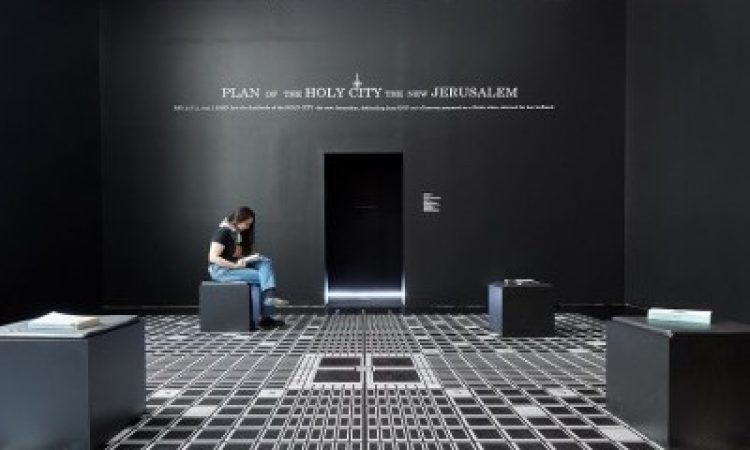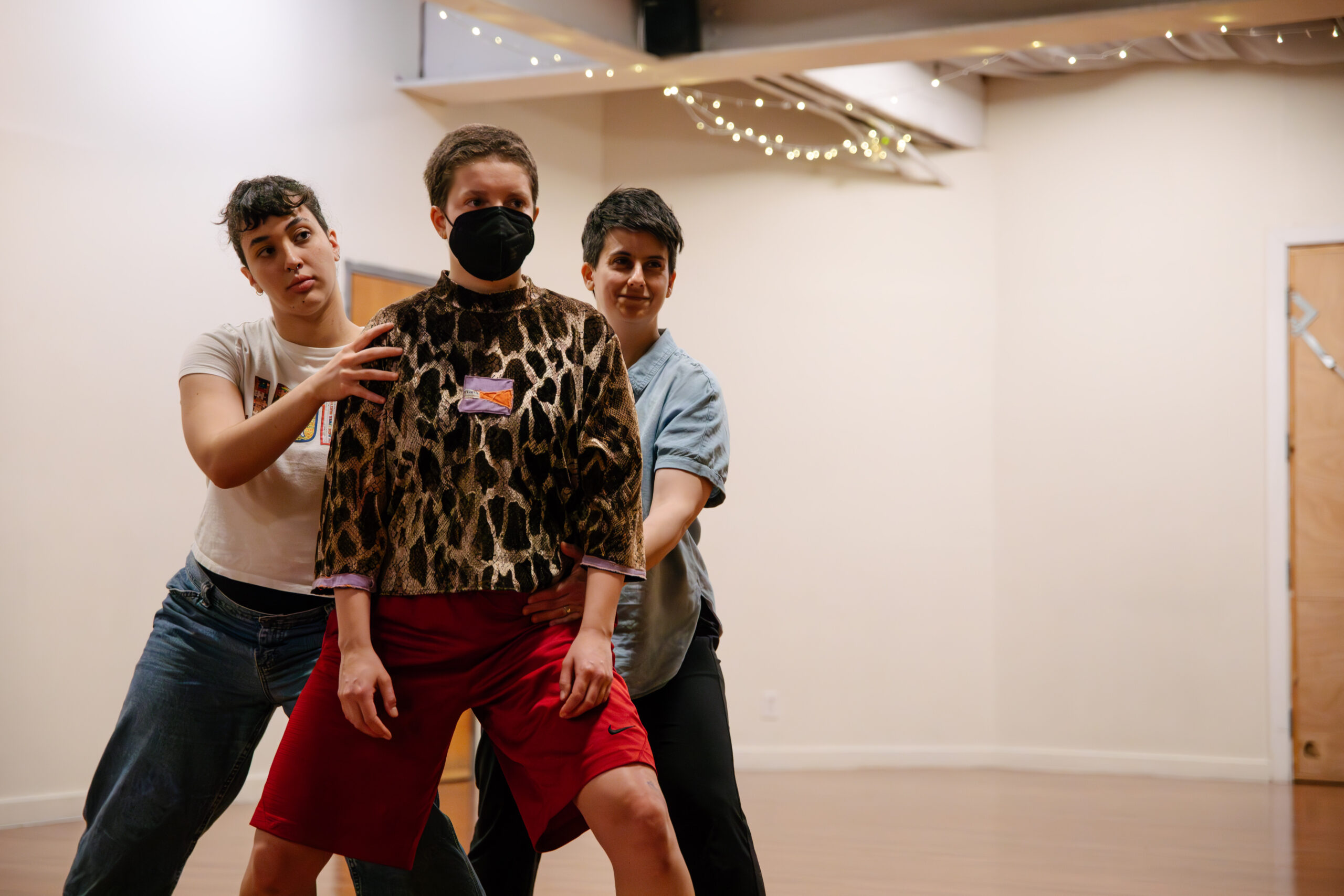On May 30, I attended one of the final nights of Tali Keren’s Un-Charting, a 3-month exhibit that included her film of the same title, at the James Gallery at CUNY Graduate Center in NYC. This evening’s special programming, Charting Settler Choreography, offered a conversation between Tali Keren, choreographer and researcher Hadar Ahuvia, and film scholar and curator Shirly Bahar. The experience was heart-opening, smart, provocative, and it continues to weigh on my mind.
Keren’s film investigates Evangelical Christians in the United States who learn and perform Israeli folk dances. She includes clips of Faith Bible Chapel members, who, since 1977 have been performing Israeli folk dances for publics including the Israeli Defense Forces (IDF). This may not be news for all, but I watched the beginning of Un-Charting with a bit of incredulity. As the rest of the evening unfolded, I was confronted with this reality and how these seemingly innocuous dances illustrate how violence is held and propagated through the body.
The James Gallery is a small space just off the lobby at the CUNY Graduate Center. Artifacts and materials that became the basis for Keren’s film are displayed in glass cases and on the walls of what is called the Resource Room. Two images stand out, even before I fully understand them. One is a photograph of a map made by Richard Brothers in 1801 which he called a vision of “New Jerusalem”. The same “New Jerusalem Plan” is also painted on the floor of the main gallery space where talks are held. This fictitious map, created so long ago, shows a new plan for Jerusalem, wiping away the real Jerusalem for a set of grids and coordinates. The other image is also of a city-of the buildings that make a place home, the streetlights, the houses, mosque. But this is another imagined place, a fictitious city in the all-too-real Tze’elim Army Base in Israel. Although not surprising that such a training facility exists, seeing those details jars me, and saddens me, in a way that the constant news reports of conflict no longer do. In both photographs, there is a tension between what is imagined, what is real, and what is a replica, and these distortions show a kind of violence – one of erasure and one of physical conflict. Jerusalem. This dizzying entanglement continues throughout the night in both the film itself and the talkback.
Un-Charting is part of a trilogy of films by Keren that interrogates the relationship and history between the U.S. and Israel through conservative American Evangelical Christianity and Zionism. The 3-D rendered animation reminded me of the realistic, immersive graphics of many video games. The content and imagery draws from the artifacts in the exhibit, clips of Faith Bible teen dancers, as well as interviews with two women – Ilana Segev, choreographer of Gvanim Dance Company, and Cheryl Morrison, the head of Israeli Outreach for Faith Bible Chapel in Colorado. At times, my eye follows lines and shapes that trace toward glowing stars and roll over curving hills. This flowing, harmonious camera movement draws me into the imagery on the curved screen and is a contrast to some of the violent sentiments portrayed through other imagery and the choreographers’ voices.
When the camera enters the deserted city of Tze’elim’s training facility, Segev, quoting Morrison, compares the removal of Native Americans at the founding of the United States to the expulsion of Palestinians at the founding of the state of Israel, but takes it further to state that Israel did not complete the task and that they should look to how the United States removed the Native Americans for inspiration. Poignant and stark, the comments about genocide were delivered so casually that they seemed to hold the same value as discussing ones grocery list. These clips, along with footage of American evangelicals performing Israeli folk dances against the backdrop of the military base in Israel, is another example of the entanglement across time and place – of citizenry, of dances, and of military policies. The film ends with the dancers performing in army fatigues, their faces blurred out; perhaps to remove blame from the individual dancers. As Keren points out during the conversation, while white supremacy permeates the group and its leaders, there are needs fulfilled in this church beyond religion specifically – health care, financial safety, and networks of community.
Choreographer Hadar Ahuvia also showed excerpts from her performances in which she investigates similar topics. In Everything you have is yours?, Ahuvia and another dancer slowly and subtly shift their weight while sitting on the floor. A face is projected onto their bodies, instructing and describing the dances. The teacher becomes a talking head and drives home how disconnected and disassociated the dance is from the dancer, the teacher, and the viewer.
There is hope in the conversation as well. The artists spoke of how imagination and productive community spaces can push back against colonialism. Ahuvia said that teaching Yiddish dances before Israeli folk dances exposes the codification of the folk dances and how that alone has been an act of re-taking and claiming culture. Keren spoke about her anger which propelled her to make the film. They both talked about how the art world has been slow, and afraid, to touch these subjects, but there are hints of change. The entire evening revealed violence hidden in something else, from historic maps to teens performing folk dances. What do we carry in our dance? What do I carry in my dance? These questions haunt me as I leave.Un-charting, the film, the exhibit, and this rich conversation felt like a step towards revealing these truths.
Charting Settler Choreography – The Center for the Humanities, May 30, The James Gallery at CUNY Graduate Center.
Tali Keren: Un-Charting, Mar 9-Jun 4.
Tali Keren, Un-Charting: simulator film, 2021-2023 3D animation, duration: 17






